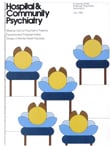Paranoia and Progress Notes: A Guide to Forensically Informed Psychiatric Recordkeeping
Abstract
Trainees in the mental health professions, and their teachers, might well use paranoia as a motivating force to make psychiatric records effective for forensic purposes, utilization review, and sound treatment planning. The utilization reviewer maintains a highly quantitative view, as if all forms of treatment were like poultices of a predetermined size and predetermined rate of application. The utilization perspective is, If it isn't written, it didn't happen. it is also important not to confuse progress with process notes; process material and conscious and unconscious content belong in a private set of notes, while the public records contain the facts. The author outlines other considerations, such as what to do at the realization that a significant detail was omitted from an earlier note and how to document a situation in which a clinically based calculated risk was taken.
Access content
To read the fulltext, please use one of the options below to sign in or purchase access.- Personal login
- Institutional Login
- Sign in via OpenAthens
- Register for access
-
Please login/register if you wish to pair your device and check access availability.
Not a subscriber?
PsychiatryOnline subscription options offer access to the DSM-5 library, books, journals, CME, and patient resources. This all-in-one virtual library provides psychiatrists and mental health professionals with key resources for diagnosis, treatment, research, and professional development.
Need more help? PsychiatryOnline Customer Service may be reached by emailing [email protected] or by calling 800-368-5777 (in the U.S.) or 703-907-7322 (outside the U.S.).



